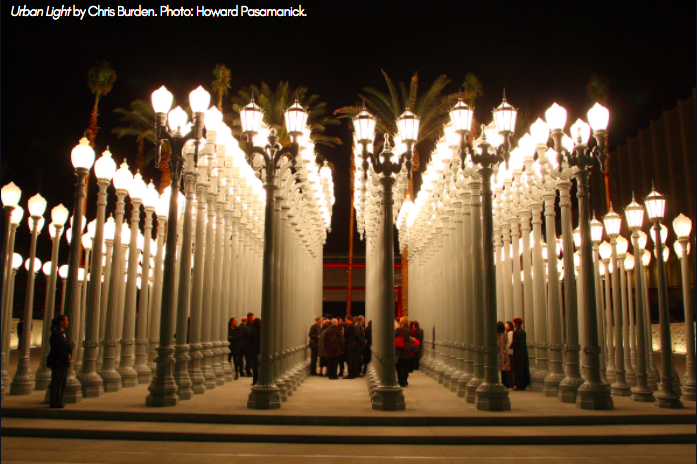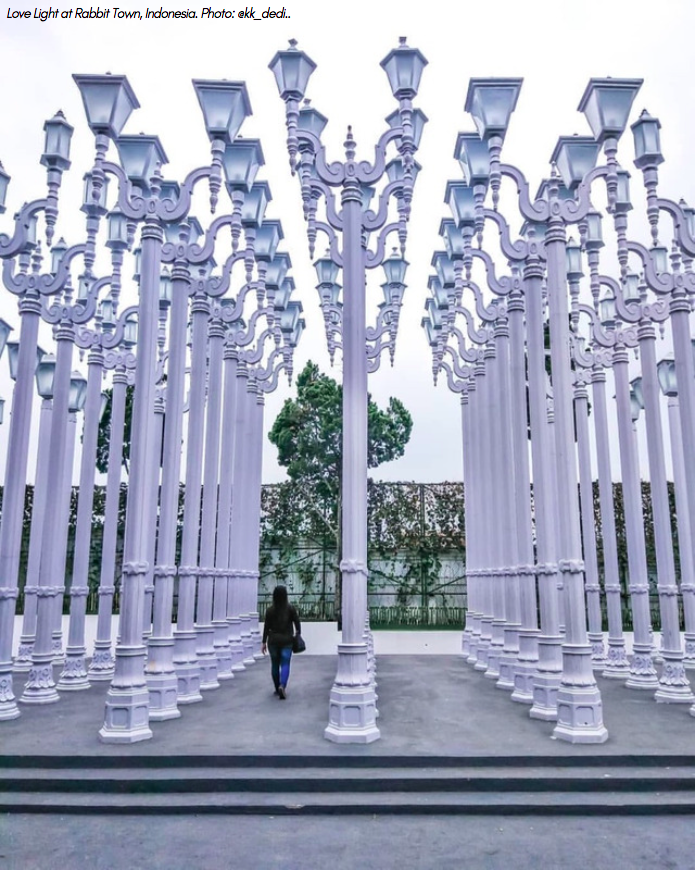Art Law: Indonesian Court finds Selfie Theme Park has Infringed on the Copyright of Chris Burden

In a groundbreaking example, the Chris Burden Estate recently won a landmark copyright case in Indonesia that protects not only his intellectual property, but the rights of artists more broadly.
Chris Burden (1946-2015) was an American artist who worked in sculpture, performance, and installation. In his multidisciplinary practice, he was interested in identifying and working with or responding to systems and frameworks—whether the physical limitations of his body, the rules of physics or engineering, or preconceived cultural mores. It seems appropriate that the Burden Estate would now use the existing legal framework to protect the foundational intellectual property underlying his innovative artwork.
While the Burden Estate takes the late artist’s copyright very seriously, it takes a balanced approach to the sharing of images of his artwork. For educational uses, the Estate generally provides open access, whether by sharing digital images or providing access to the physical archives, either for free or at a very low cost. However, the Estate negotiates licenses with third parties who use images of Burden’s work for commercial purposes, and the Estate monitors unauthorized commercial use.

Urban Light (2008), installed at the Los Angeles County Museum of Art, is perhaps one of Burden’s most well-known and widely-loved large-scale installations. It is a sculptural artwork that consists of 202 restored cast iron antique street lamps which are arranged in a grid-like format. As Burden himself described it:
“Urban Light is an artwork that I have created by amassing and restoring a huge collection of 1920s cast iron street lamps from Los Angeles. Street lamps are one of the fundamental building blocks of an urban metropolis. The richly detailed fluted lamps are an ornate totem to industrialism and represent a form of public art. My artwork, Urban Light is ultimately a statement about what constitutes a civilized and sophisticated city, safe after dark and beautiful to behold.”
The Selfie Park in Indonesia
Others have sought to profit from the expression in Urban Light. In 2018, Diet Prada posted on Instagram to criticize a theme park in Bandung Indonesia, Rabbit Town, that had created an attraction called Love Light. Consisting of 88 antique-looking street lamps, painted in white and arranged in a grid-like format, Love Light looks almost identical to Urban Light. Rabbit Town was charging admission to the park, and additional fees to allow visitors to take selfies in front of Love Light. (Rabbit Town also features other attractions that appear to be very similar to other artists’ artwork, selling access to these Instagrammable spots.)
After communications with Rabbit Town failed, the Estate filed a lawsuit in June 2020 in Indonesia, arguing that Rabbit Town, a commercial enterprise, violated Burden’s copyright in Urban Light by copying his work without permission, and making money off of Love Light. After close to a year in court, the Indonesian courts found in the Estate’s favor in April 2021, concluding that Rabbit Town violated Burden’s moral rights by copying and modifying Urban Light without mentioning his name and without the Estate’s permission, and violated Burden’s economic rights by displaying and taking commercial advantage of Love Light.
Why Copyright Still Matters
The Court found that there was substantial similarity between Urban Light and Love Light, a key factor in copyright infringement, noting the large-scale sculptural format, street lamps as materials, and grid-like arrangement of the lamps. The Court also found that Love Light was not an original work by the defendant, as the defendant was shown to have had previous knowledge of the existence of Urban Light. In concluding that Rabbit Town had violated Chris Burden’s rights, the Court ordered Rabbit Town to destroy Love Light and issue a public apology to the Estate.
In this digital age, it is easy to share images. For artists, this creates an opportunity for their artwork to gain exposure and potential audiences. On the flip side, however, it is much easier for third parties to take advantage of the time, effort, and creativity that an artist has put into an artwork – and to capitalize on someone else’s intellectual property. In a jurisdiction such as Indonesia that does not often consider copyright cases, this landmark decision recognized a foreign artist’s rights. With the help of local lawyers from IABF Law Firm, this decision sets a groundbreaking precedent that artist rights can be protected globally under the international copyright framework, and proves that the law can be a powerful tool to protect the assets of an artist against those that would try to take advantage of them.
Yayoi Shionoiri (@yayoi_shionoiri) is an art lawyer and the Executive Director to the Chris Burden Estate and the Nancy Rubins Studio.

